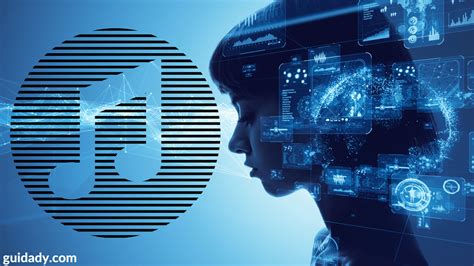The artificial intelligence revolution continues to reshape various creative industries, and music production is no exception. The recent launch of Udio, an AI-driven platform, emphasizes how rapidly this technology is evolving and influencing artistic expression. Udio enables users to generate music tracks across a variety of styles with just a few text prompts. It’s a fascinating development that promises to democratize music creation but also raises pertinent questions about creativity and originality in the digital age.
One of the most appealing aspects of Udio is its accessibility and simplicity. The platform offers users the ability to create high-quality music without needing extensive knowledge of music production or access to expensive studio equipment. This opens up the world of music creation to a broader audience, enabling users from all backgrounds to express themselves musically and explore different genres effortlessly. However, while this feature democratizes access to music production, it also challenges traditional notions of musical authorship and expertise.
Despite its innovative approach, Udio has not been without its criticisms. The music generated, while impressive, often lacks the long-term structural coherence that characterizes more traditional compositions. Issues like these highlight the gaps AI still needs to bridge in understanding and replicating the full depth of human creativity. Moreover, the reliance on predefined styles and prompts can sometimes lead to generic outputs, which may not fully capture the nuanced intent of the user. It’s a reminder that while AI can mimic creativity, there’s an intangible quality to human-made art that is hard to quantify or reproduce.
The legal and ethical implications of AI in music are equally complex. Udio, like many AI platforms, relies on vast datasets of existing music to train its algorithms. This practice raises questions about copyright infringement and the rights of original artists, especially when recognizable styles or voices are replicated without clear permissions. As AI music generation becomes more prevalent, the industry must navigate these waters carefully to avoid legal backlash and ensure fair compensation for all creators involved.
User feedback on Udio’s platform has been mixed. Enthusiasts of AI technology applaud the innovation and the new possibilities it opens up. Others, particularly professional musicians and producers, express concern about the impact of such technologies on the craft of music-making. They worry that AI-generated music might devalue the skills and creative processes that have defined the industry for generations. These concerns highlight an ongoing debate in numerous creative fields about the role and impact of artificial intelligence.
Amid these debates, the potential commercial applications of Udio are significant. From advertising jingles and background tracks for public spaces to full-fledged pop songs, the ease and speed of AI-generated music can be a game-changer for many businesses. This could lead to a shift in how music is produced and consumed, with AI becoming a common tool in the music producer’s toolkit, much like synthesizers and auto-tune were in the past.
Looking to the future, the evolution of AI music generation holds intriguing possibilities. Advances in AI could lead to more sophisticated tools that might eventually replicate the depth and emotion of human compositions more closely. As the technology matures, we might see AI not just as a tool for creating music, but as a collaborative partner in the creative process, capable of bringing new ideas and inspirations to the table.
Udio’s journey represents just the beginning of what may be a significant transformation in how music is created and consumed. While challenges remain in terms of authenticity and creativity, the continued integration of AI into music promises to bring both disruptions and opportunities. As we navigate these changes, the music industry must remain adaptable, ensuring that innovation does not come at the expense of the artistry and human touch that make music deeply resonant and universally beloved.


Leave a Reply